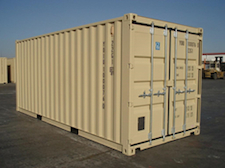Google, Others Back App Container Spec

An application container specification that defines how to build and run pre-packaged apps has gained some big-name backing as an ecosystem emerges to "secure the backend of the Internet," roll out distributed systems and bring web-like scaling to the enterprise.
CoreOS, which is staging a community event this week to promote distributed systems and the applications containers that will run on them, said Monday (May 4) that Apcera, Google, Red Hat, Twitter and VMware are implementing or would contribute to its App Container spec. Co-Founder and CEO Alex Polvi also announced in a blog post that CoreOS has implemented the spec in a container runtime dubbed rkt.
CoreOS announced an application container runtime called Rocket recently along with new security features and a mechanism for tracking applications containers.
Also this week, San Francsico-based CoreOS announced new features in its Quay hosted private container registry.
Of all the support coalescing around the CoreOS approach to app containers, perhaps the most significant is Google's backing for the new CoreOS container spec through integration of rkt as a configurable container runtime in it Kubernetes clusters. Support for the spec will allow "developers to use their preferred container image through the same Google infrastructure inspired orchestration framework," Craig McLuckie, Google's product manager and Kubernetes co-founder, said in a statement included in the Polvi's blog post.
The partners said integration of rkt with Kubernetes means that users will have the ability to run ACIs, the image format defined in the App Container spec, and that rkt’s native support for running Docker images also allows for use of existing images.
CoreOS added that the search giant along with Red Hat would serve as a "maintainers" of the new container application spec.
Docker proponent Red Hat welcomed the CoreOS spec, noting that "fragmentation of approaches and formats runs the risk of undercutting the momentum" building behind container adoption.
VMware announced last month it was shipping the rkt container runtime engine with its vSphere and vCloud Air offerings. VMware said the CoreOS spec addresses container portability and security across platforms, key concerns as enterprises slowly roll out the technology in production environments within their IT infrastructure.
Adding to the mix, Apcera, the hybrid cloud operating system vendor, also announced a new implementation of the CoreOS app container spec called Kurma. Kurma is described as an execution environment for running applications in containers, providing a framework for managing and orchestrating containers.
Kurma joins a growing list of implementations that include the JetPack runtime from FreeBSD and libappc, a C++ library for using containerized applications, Core OS said.
Polvi noted that growing support for the app container spec would "ensure there is an industry standard for application containers, providing guidelines to ensure security, openness and modularity between stacks."
Meanwhile, CoreOS said the added features on its Quay registry include a new caching layer, image tagging history and secure hosting for private container repositories like rkt and Docker.
Related
George Leopold has written about science and technology for more than 30 years, focusing on electronics and aerospace technology. He previously served as executive editor of Electronic Engineering Times. Leopold is the author of "Calculated Risk: The Supersonic Life and Times of Gus Grissom" (Purdue University Press, 2016).










